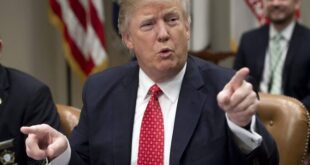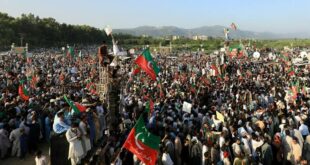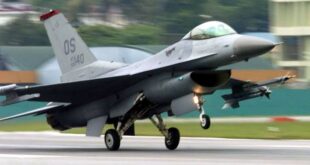
By:
Usman Ali
Special Correspondent Pride News
FINANCIAL CRISIS IN PAKISTAN
Pakistan Tehreek-e-Insaf (PTI) Chairman and former prime minister Imran Khan on Friday slammed the ‘imported government’ over recent hike in petrol and diesel prices up to Rs14 per litre.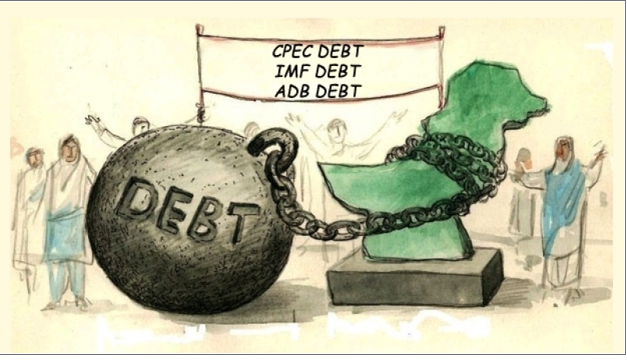
Taking to Twitter, the former premier Imran Khan said that instead of buying cheaper oil from Russia the “imported government” continues to put an unbearable burden on people while giving themselves NRO2.
“Instead of buying cheaper oil from Russia Imported govt, brought in by US regime change conspiracy, continues to put unbearable burden on people while giving themselves NRO2 worth Rs 1100 bn,” he wrote.
Instead of buying cheaper oil from Russia Imported govt, brought in by US regime change conspiracy, continues to put unbearable burden on people while giving themselves NRO2 worth Rs 1100 bn. Total increase Rs 99 for petrol, Rs 133 for diesel. Join our protest ag this
— Imran Khan (@ImranKhanPTI) July 1, 2022
PTI chairman and former prime minister Imran Khan also appealed to people to join PTI’s protest against hike in petrol prices tomorrow (Saturday).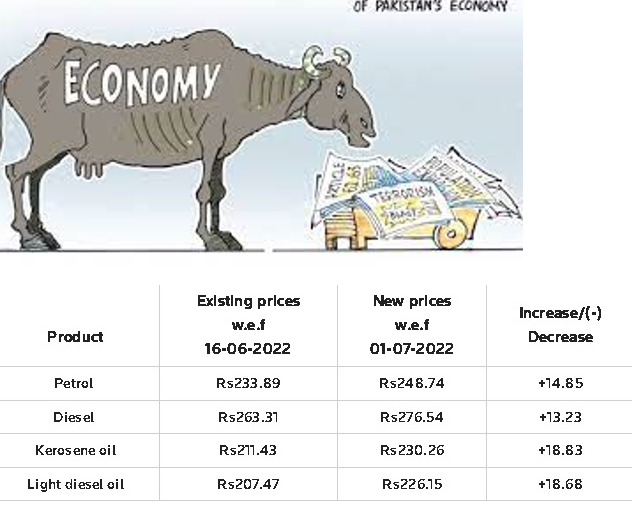
Pakistan Muslim League Nawaz-led coalition government on Thursday jacked up petrol prices by Rs14.85 per litre, the third such rise within a month.
After the recent increase, the new petrol price has been fixed at Rs248.74 per litre, the finance ministry announced. The price of high-speed diesel has been increased by Rs13.23 per litre and the new price has been fixed at Rs276.54 per litre.
The notification further stated an increase of Rs18.83 in the price of kerosene, while the rate of light-speed diesel has been jacked up by Rs18.68 per litre.
On June 15, the government increased the petrol price by Rs24 per litre.
Looking for ways to tide over its current economic crisis, Pakistan may consider giving minority shares in its public-owned companies to the United Arab Emirates at a negotiated price.
China, another Pakistan ally, has also stepped in to help the country with a $2.3 billion loan.
As Pakistan’s economic condition has worsened over the last few years with foreign exchange reserves dipping, it has turned to various kinds of loan deals. Sources told the UAE was unwilling to give $2 billion, after Pakistan failed to pay back the loan it had received in February 2019 of the same amount. UAE government has offered to acquire 10 to 12 per cent shares in government-owned companies in Pakistan through its sovereign wealth funds.
“There is a proposal from a friendly country to purchase Pakistani companies’ stocks on buy-back basis, which means buying secured-loan-based securities,” said Finance Minister Miftah Ismail. This means that Pakistan would want to buy back the stakes in its companies after a certain period.
Meanwhile, China too has offered loans to Pakistan in the past like in March 2019 it gave a loan of $2.1 billion to the South Asian country. It was reported that in the same year the country had received $1 billion each from Saudi Arabia and the UAE, as part of the bailout packages given by the two Gulf nations. Saudi Arabia’s loans were a part of a $6 billion bailout package, which was agreed to in 2018.
Apart from its traditional allies, Pakistan has reached out to countries that have given loans to it in the past for temporary relief. On June 27, the country’s Economic Affairs Division tweeted it had signed a “Debt Service Suspension Agreement with the French Republic” so that loans worth $107 million would be suspended. The amount that was earlier repayable between July to December 2021 will now be repaid over six years (including a one-year grace period) in semi-annual instalments.
Similarly, in April 2021 in light of the Covid-19 crisis, Japan agreed to suspend loans of $370 million to Pakistan, reported Express Tribune.
Has the IMF offered help?
Currently, Pakistan is requesting a bailout from the IMF but has not received any confirmation for it. The Express Tribune reported on June 29 that IMF has set four “tough prior conditions” that include increasing electricity tariffs, and imposing a Rs 50/litre petroleum levy. While it is not a part of the prior conditions, the IMF has also asked for an anti-corruption body set up to probe government corruption.
Once this is done, the IMF would present Pakistan’s request for approval to its executive board. At the end of it, approval could help the country secure a loan of USD 2 billion.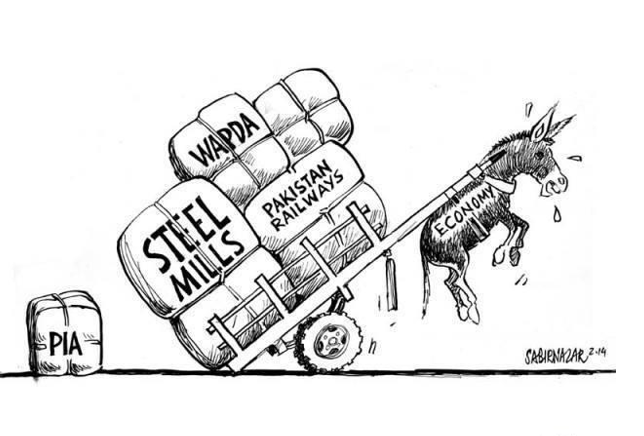
Why is wrong with Pakistan’s economy?
In the last few years, due to multiple factors, Pakistan has seen economic problems of worsening inflation and depletion of its foreign exchange reserves. According to the World Bank’s outlook for the country from April this year, this has been due to “long-standing structural weaknesses of the economy and low productivity growth”.
A “less conducive external environment for exports” has additionally contributed to a record-high trade deficit, weighing on the Pakistani Rupee.
This is not the first time that the country is seeing a financial crisis. However, this time international organisations are not lending to the country on similar terms as before, except for China. Chinese investments in Pakistan are significant, but not limited to the China Pakistan Economic Corridor — an infrastructure project that is part of China’s ambitious Belt and Road Initiative.
Pakistan has had a leadership change since many of these deals were negotiated, and its economy’s future outlook remains uncertain. The World Bank said prospects look good in certain areas such as rice and sugarcane farming, and the positive growth of private consumption affected during the peak of Covid. The FTAF had also recently acknowledged improvements made by Pakistan to address terror financing, and it may come off its grey list, potentially inviting more investments and enhancing the ability to borrow from international organisations.
However, the World Bank cautioned that “domestically, political tensions and policy slippages can also lead to protracted macroeconomic imbalances”. Fuel and electricity shortages, inflation, and prolonging heat waves that affect agriculture, like the one being witnessed this year across the subcontinent, are some major concerns in the short term.
 Pride News Daily NEWS
Pride News Daily NEWS

